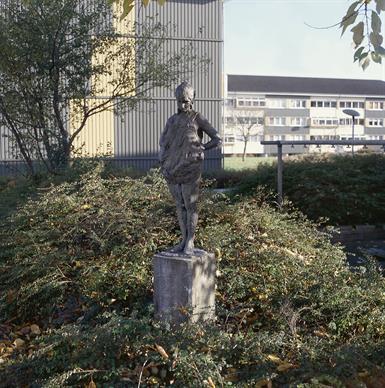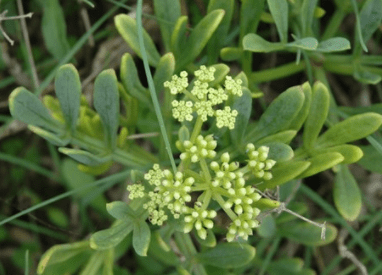The wild edible plant crithmum has been discovered for the first time in Denmark by the environmental protection agency, Miljøstyrelsen.
Also known as sea fennel or samphire, the plant was found in the dunes near Rubjerg Knude in north Jutland.
“It’s very rare that new plants find their way into Denmark on their own accord. Normally, new plants turn up because their seeds are spread by cars and transportation, but sea fennel looks to have reached the Jutland west coast by the help of sea currents,” said Tage Burholt, a biologist with Miljøstyrelsen.
Making a Brexit perhaps?
The plant is most prevalent in the Mediterranean, but it has also been found in Norway and does grow in the southern part of the UK.
But while the sea fennel can be used in salads, as is the case in the UK, Miljøstyrelsen urges people to leave it alone in the Danish wild.
“You should probably wait a few years, or we’ll risk that the sea fennel will quickly disappear again,” said Burholt.
Bornholm discovery
The discovery of a rare piece of copper from the latter part of the Stone Age on Bornholm could lead to a more nuanced viewpoint of the period. According to one archaeologist, it could reveal the importance of religion to the Stone Age people and it could also indicate they were far more advanced and had more contact with other parts of the world than currently believed.
Red kites poisoned
A whole family of red kites, a bird of prey protected in Denmark, has been illegally poisoned in an area between Silkeborg and Viborg in Jutland. The two adult and two fledgling raptors’ deaths were caused by the ingestion of the spray poison parathion. According to the national ornithological society DOF, the poisoning has been reported to the police. Parathion has been completely banned in Denmark and the EU since 2003.
Statue heist
The iconic bronze statue ‘Pigen, der gør morgentoilette’, which has stood in Randers in Jutland since 1976, has been stolen. The police suspect the statue, which was made by the noted Dutch sculptor Hans Bayen and was commissioned back in 1945, is on its way to be melted down somewhere. The sculpture is estimated to be worth around 100,000 kroner. A similar statue is located in the Dutch city of Utrecht.












